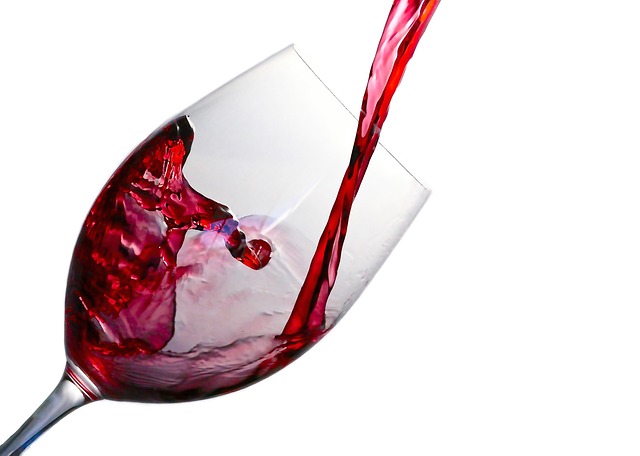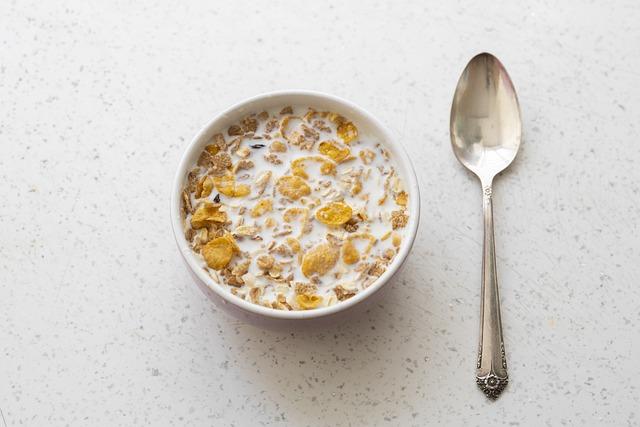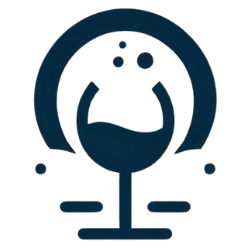Have you ever found yourself pondering over the question, “Can I indulge in a glass of wine just a few days before my colonoscopy?” If so, you’re certainly not alone. As the highly anticipated procedure approaches, it’s natural to wonder about the potential impact of alcohol consumption on the effectiveness of this important test. But fear not, for we are here to shed light on this topic and provide expert advice on whether or not that beloved glass of wine should be a part of your pre-colonoscopy routine. So, sit back, relax, and allow us to guide you through the facts so that you can make an informed decision.
Obsah
- Understanding the Importance of Preparation for a Colonoscopy
- The Impact of Drinking Wine on Colonoscopy Results: Expert Insights
- Guidelines to Follow Regarding Alcohol Consumption Before a Colonoscopy
- Recommendations from Medical Professionals on Drinking Wine Prior to a Colonoscopy
- The Potential Risks and Interference of Alcohol in Colonoscopy Preparation
- The Effects of Wine on the Colonoscopy Procedure: What to Know
- Research and Evidence: How Alcohol Consumption Can Affect Colonoscopy Results
- Expert Advice on the Impact of Wine on the Accuracy of Colonoscopy Exam
Understanding the Importance of Preparation for a Colonoscopy
Preparing for a colonoscopy may seem daunting, but it is a crucial step in ensuring accurate and effective results. By understanding the importance of proper preparation, you can help your healthcare provider detect any abnormalities and potentially prevent serious conditions. Here are a few key reasons why preparation is vital:
- Clear visualization: Adequate preparation of the colon allows the gastroenterologist to clearly see the lining of your colon during the procedure. This enhances their ability to identify any polyps or abnormal tissue growth that could indicate a potential risk of colorectal cancer.
- Avoidance of repeat procedures: Incomplete preparation may lead to an incomplete colonoscopy, requiring the need for a repeat procedure. By following the preparation instructions carefully, you minimize the likelihood of any missed areas or complications, ensuring only one colonoscopy is necessary.
- Improved accuracy: When the colon is well-prepared, it not only increases the chances of detecting any abnormalities but also improves the accuracy of the diagnosis. This can provide early intervention if any issues are discovered, leading to better treatment outcomes and potentially saving lives.
Remember, the success of your colonoscopy depends significantly on your preparation. It is important to carefully follow the instructions provided by your healthcare provider, which may include adjustments to your diet and temporary changes to your medication routine. By doing so, you are taking an active role in your health and promoting the effectiveness of this lifesaving screening procedure.
The Impact of Drinking Wine on Colonoscopy Results: Expert Insights
Wine Consumption and Colonoscopy Results
During the preparation process for a colonoscopy, it is crucial to maintain certain dietary restrictions to ensure accurate and reliable results. One frequently debated topic is the impact of drinking wine on these results. To shed some light on this matter, we have consulted leading experts in the field to provide their insights.
- Altered Visualization: Wine consumption prior to a colonoscopy may affect the visibility of the colon lining during the examination. The presence of alcohol in the bloodstream can potentially cause dilation of blood vessels, leading to a distorted view. It is strongly recommended to abstain from drinking wine for a specific period before the procedure to optimize the accuracy of results.
- Possible False Positives: Another consideration is the potential influence of wine on the detection of abnormalities. The sensitivity of the diagnostic tools used during a colonoscopy is paramount for accurate identification, and wine consumption has been linked to false positives. Thus, it is crucial to adhere to the recommended restrictions to minimize any potential misinterpretation of the results.
- Digestive Disruption: Wine, like other alcoholic beverages, can cause digestive disturbances, such as gas and bloating. These symptoms can affect the patient’s comfort during the procedure and may even impede the process itself. It is advisable to discuss any recent wine consumption with your healthcare provider to ensure an optimal experience and avoid unnecessary complications.
While moderate wine consumption can have potential health benefits, it is essential to prioritize accurate colonoscopy results. Following the guidelines provided by medical professionals and abstaining from wine during the recommended timeframe will contribute to obtaining the most reliable outcomes.
Guidelines to Follow Regarding Alcohol Consumption Before a Colonoscopy
When preparing for a colonoscopy, it is crucial to follow certain guidelines regarding alcohol consumption to ensure accurate and reliable test results. Here are some important pointers to keep in mind:
- Avoid alcohol at least 48 hours before the procedure: To allow for proper bowel preparation, it is strongly recommended to abstain from consuming any alcoholic beverages for at least 48 hours before your colonoscopy. Alcohol can interfere with the effectiveness of the prescribed laxatives and make it harder to cleanse your colon adequately.
- Hydrate with clear fluids instead: During this alcohol-free period, make sure to stay well-hydrated by drinking clear fluids such as water, herbal tea, or clear broths. These beverages help maintain hydration levels while assisting in flushing out any remaining contaminants from your system.
- Refrain from drinking alcohol immediately after the procedure: Even after your colonoscopy is complete, it is best to avoid consuming alcohol right away. Your body may still be recovering from the sedation or anesthesia used during the procedure, and alcohol can interfere with this process. It’s important to prioritize rest and allow your body time to recuperate before resuming normal activities, including alcohol consumption.
By following these guidelines, you can ensure the optimal conditions for a successful colonoscopy. Remember, any doubts or concerns should be addressed with your healthcare provider, who can provide personalized advice based on your specific situation. Together, we can ensure a smooth and effective colonoscopy experience.
Recommendations from Medical Professionals on Drinking Wine Prior to a Colonoscopy
When it comes to preparing for a colonoscopy, medical professionals have different opinions regarding the consumption of wine. While some may argue that a small glass of wine can help you relax before the procedure, most experts strongly recommend avoiding alcohol altogether. Here’s what you need to know:
1. Dehydration concerns: Alcohol is a diuretic, meaning it increases urine production and can lead to dehydration. This can interfere with the effectiveness of the bowel preparation required for a successful colonoscopy. It is crucial to keep your body hydrated during in the days leading up to the procedure. Drinking water, herbal teas, or clear liquids like broths should be your main focus.
2. Interference with anesthesia: Wine or any alcoholic beverage can interact negatively with the anesthesia used during the colonoscopy. Consuming alcohol prior to the procedure may heighten its effects, potentially increasing the risk of complications during sedation. To ensure maximum safety, it is advised to strictly follow the instructions provided by your healthcare professional, stating the abstention from alcohol for at least 24 hours before the colonoscopy.
The Potential Risks and Interference of Alcohol in Colonoscopy Preparation
When it comes to preparing for a colonoscopy, alcohol consumption can pose a number of risks and interfere with the effectiveness of the procedure. It is essential to understand the potential implications and adhere to the guidelines provided by your healthcare provider. Here are some key points to consider:
- Delayed bowel cleansing: Alcohol consumption can significantly impact the cleansing process required before a colonoscopy. It can slow down bowel movements and impede the expulsion of waste material.
- Dehydration: Alcohol is a diuretic, meaning it increases urine production and leads to fluid loss. This can result in dehydration, which can hinder the preparation process and affect the accuracy of the colonoscopy.
- Incomplete visualization: Alcohol can interfere with the ability of the physician to visualize the colon clearly during the procedure. This can lead to missed abnormalities or false negatives, compromising the accuracy and effectiveness of the colonoscopy.
- Sedation complications: Many colonoscopies require sedation to ensure patient comfort. Alcohol can interact with the sedatives, intensifying their effects and potentially causing complications such as excessive sedation or respiratory depression.
Given these potential risks, it is crucial to abstain from consuming alcohol for a specific duration before your scheduled colonoscopy. Your healthcare provider will provide detailed instructions regarding the time frame and any other dietary restrictions you should follow. By adhering to these guidelines, you can ensure a smoother preparation process and increase the chances of obtaining accurate results from your colonoscopy.
The Effects of Wine on the Colonoscopy Procedure: What to Know
Preparing for a colonoscopy can be a nerve-wracking experience, but it’s important to understand how certain substances, like wine, can impact the procedure. While it may be tempting to relax with a glass of wine the night before, it is crucial to make informed choices to ensure the best possible results. Here are a few key points to consider:
- Alcohol and dehydration: Wine, like all alcoholic beverages, can dehydrate your body. It is essential to stay properly hydrated during the preparation phase of a colonoscopy, as dehydration can affect the effectiveness of the bowel cleansing process. It is recommended to avoid alcohol, including wine, for at least 48 hours prior to the procedure to maintain adequate hydration levels.
- Interference with sedation: During a colonoscopy, you will be given sedatives to keep you comfortable and relaxed. Consuming wine before the procedure can interfere with the effectiveness of these sedatives, potentially impacting your comfort during the procedure. It is important to follow your doctor’s instructions to abstain from alcohol to ensure the sedation works effectively.
While it may be disappointing to forego a glass of wine, it is crucial to prioritize your health and follow the guidelines provided by your healthcare professional. Remember, the aim of a colonoscopy is to detect and prevent serious conditions, and adhering to the preparation guidelines is a vital part of achieving accurate results. If you have any concerns or questions, don’t hesitate to discuss them with your doctor before the procedure.
Research and Evidence: How Alcohol Consumption Can Affect Colonoscopy Results
When it comes to preparing for a colonoscopy, one crucial factor that many individuals may overlook is the impact of alcohol consumption on the accuracy of the results. Research has shown that alcohol can have several significant effects on the colonoscopy procedure, which can ultimately affect the reliability and effectiveness of the examination.
Here are key findings from studies examining the relationship between alcohol and colonoscopy results:
- Increased risk of incomplete examination: Alcohol consumption before a colonoscopy has been associated with a higher likelihood of inadequate bowel preparation. This can result in suboptimal visualization of the colon and potentially lead to missed abnormalities or lesions.
- Enhanced discomfort and complications: Consuming alcohol prior to a colonoscopy can worsen the side effects experienced during the procedure. This includes heightened pain, cramps, and bloating. Moreover, alcohol can potentially increase the risk of post-colonoscopy complications such as bleeding or perforation.
- Interference with sedation: Alcohol can interfere with the effectiveness of the sedation administered during colonoscopy, making it less effective in ensuring patient comfort and relaxation throughout the examination.
Considering the potential adverse effects of alcohol on colonoscopy results, it is strongly recommended to abstain from alcohol consumption for at least 48 hours prior to the procedure. This will not only optimize bowel preparation but also mitigate discomfort and minimize the risk of complications. It is vital to follow the instructions provided by the healthcare provider to achieve the most accurate and reliable outcomes during a colonoscopy.
Expert Advice on the Impact of Wine on the Accuracy of Colonoscopy Exam
How does wine consumption affect the accuracy of a colonoscopy?
When it comes to preparing for a colonoscopy, certain choices can influence the accuracy of the exam. Understanding the impact of wine consumption on the efficacy of this procedure is crucial. Here, our experts shed light on how wine can affect the accuracy and reliability of a colonoscopy exam.
1. Increased risk of missed abnormalities: Wine consumption can temporarily alter the appearance of the colon, potentially leading to missed abnormalities or lesions during a colonoscopy. The remnants of wine in the digestive system can make it more challenging for healthcare professionals to identify any issues.
2. Bowel cleansing effectiveness: Adequate bowel preparation is essential for a successful colonoscopy. However, consuming wine before the procedure may compromise the effectiveness of the prescribed bowel preparation regimen. The compounds in wine can interfere with the cleansing process, making it more difficult to obtain clear visualization of the colon walls.
In conclusion, it is best to avoid consuming wine in the three days leading up to a colonoscopy as recommended by experts.










